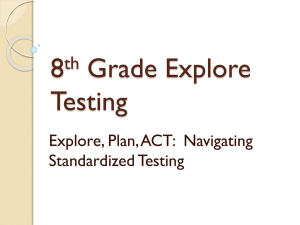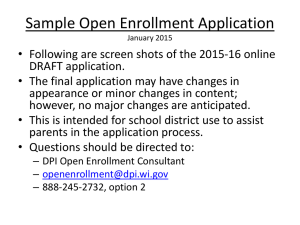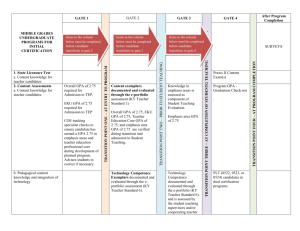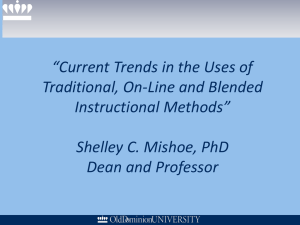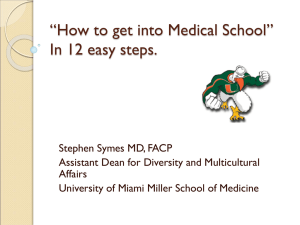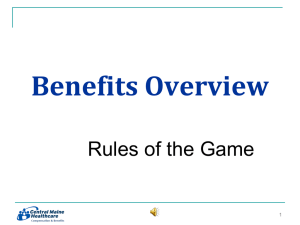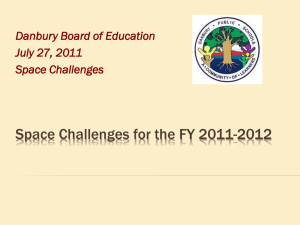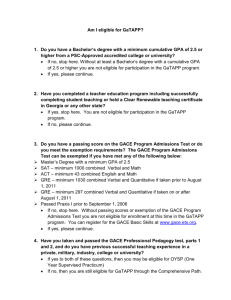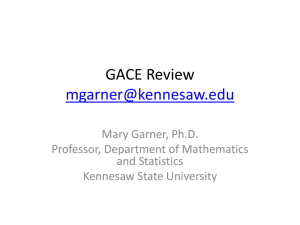Educator Preparation Programs Fact Book
advertisement
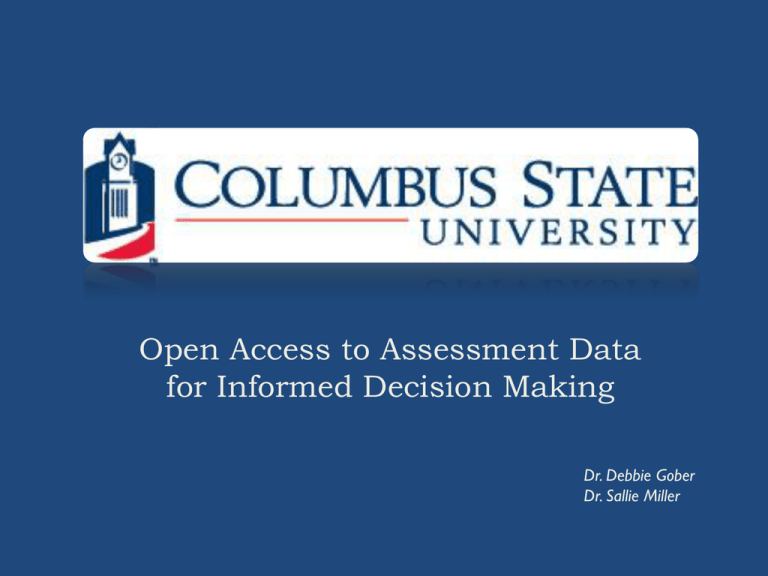
Open Access to Assessment Data for Informed Decision Making Dr. Debbie Gober Dr. Sallie Miller Session Introduction This presentation will describe a successful practice developed by Columbus State University to systematize and institutionalize the collection, summary, and evaluation of data to inform decision making. Development of an Integrated Database Collecting and Reporting Data —Online Educator Preparation Programs Fact Book College of Education Integrated Database Reports by Term Enrollment enrollment, enrollment by race enrollment by county enrollment by class enrollment by gender transfer student enrollment number applied for graduation enrollment in student teaching number admitted to teacher education Averages average GPA average CAAP scores average age average Praxis I/GACE scores average Praxis II/GACE scores average CPE scores average hours enrolled SAT/ACT averages College of Education Menu Year End Reports Provide summary information about graduates for a designated fiscal year which includes: number of graduates race, gender, and average GPA of the graduates average Praxis II and GACE scores Performance Evaluations Evaluations completed online Individual or group reports generated Collecting and Reporting Data Online Educator Preparation Programs Fact Book Purpose and Use Collecting and Reporting Data What is the purpose? Why are we collecting and reporting this data? How does the agency requesting the data use it? Are the data collected and reported used by the institutions? If so, how? What is the purpose? Why are institutions of higher education collecting and reporting the data? American Association of Colleges for Teacher Education, Professional Education Data System (PEDS Report): Reporting is a member requirement. Institution and Program Report Card: Reporting is a Federal Requirement. How is the information used by the agency requesting it? The AACTE PEDS database is used for data requests from member institutions, policymakers, and state departments of education. Are institutions of higher education using the data that are collected and reported? If so, how? Think about how your institution uses the data collected and reported to the various agencies. --------------------- In the Educator Preparation Programs Fact Book, we aggregate data for the unit and each program. --------------------- The data are compiled annually by the Assessment Coordinator and presented in the College’s Educator Preparation Programs Fact Book. Information in the Fact Book is reviewed and discussed by faculty during the annual Fall Retreat. The data presented are considered in planning and decision making, at both the program and unit levels. ----------------------------- The Professional Education Data System Report (PEDS) is an important source for the Online Fact Book. We are especially pleased that this year the data will be more current with the two-year catch-up reporting. Educator Preparation Programs Fact Book Educator Preparation Transition Points (Gates 1 – 7) http://coehp.columbusstate.edu/teach_prep_factbook.php Initial Program Transition Points Gates 1-4 Advance Program Transition Points Gates 5-7 Gate 1 Entry to Teacher Education Gate 5 Entry to Advance Degree Program GPA at Entry, EDUC 2130 or EDUF 2215 Undergraduate GPA, GRE Scores Gate 2 Entry to Student Teaching Gate 6 Exit from Advance Degree Program GPA, Content Course Grades, MAP, Dispositions GPA, GMAP, Dispositions, Exit Exam or Research Project Gate 3 Exit from Initial Program Gate 7 One Year Follow-up for Advance Degree Completers GPA, MAP, Dispositions, GACE Scores Gate 4 Induction for Graduate Initial Certification Alumni Survey, Employer Survey Alumni Survey, Employer Survey Educator Preparation Programs Fact Book Online Fact Book TOC Excerpt Educator Preparation Programs Fact Book Audience Participation How is your institutions using the data that is being collected and reported to various agencies?
